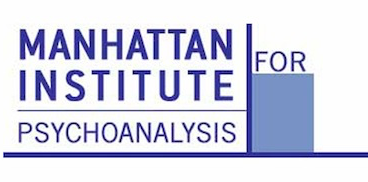By Diane Barclay, LCSW
The esteemed and gracious editor of this blog has contacted me, gently coaxing me into finishing up a piece on my experience of participating in the CORE (Committee on Race and Ethnicity) Dialogues group over the past year. I started writing this months ago, but then I just put it down. Of course, I am asking myself about the holdup here…it was a pretty good piece, I have to say, but I wouldn’t finish it. So here are my thoughts on my protracted ambivalence:
After I wrote the original draft, the very next Dialogues group was startling. I had what felt to me like a critical new way of thinking about things. With an altered perspective, I rewrote the piece. And then in the following meeting it happened again–I had a new awareness and certainly a new way of thinking that rocked my world. Now my original writing felt outdated and from the perspective of an older version of me. The process of working in the group has been so much like my own psychoanalysis. During my years of work it felt like every time I had a new awareness, I would then change my narrative a bit. The minute I had new knowledge it immediately became old knowledge; we were suddenly onto something else that changed my narrative yet again. It was never stasis. Back to the group, there has never been a dull moment there–the internal and the external are constantly moving, spinning, evolving. It is hard to stop long enough to reflect. But here is the best I can do, for the moment:
What I had originally started to write about was a discovery I had made, while unpacking an ancient box of photos and memorabilia left to my sister and I by our beloved grandmother. In a tiny trinket box, full of proud tokens from her much-awarded college career and full life, I found my grandmother’s DAR pin. For the unfamiliar, the Daughters of the American Revolution is a group of women who can prove genealogical linkage to those who fought in the American Revolution, a group obviously heavily tilted toward WASPs. The stated aim of the group is “promoting historic preservation, education and patriotism.” My first reaction to the discovery of the pin was shock. For me as a former opera singer, the DAR has a checkered past.
Let me explain: Marian Anderson, the magnificent American contralto, was one of my operatic (and historic) heroes. She was also a ground-breaking civil rights figure. The Daughters of the American Revolution quite famously refused to allow Ms. Anderson, an African-American, to sing to an integrated audience in Constitution Hall in Washington, D.C., in 1939. So, she instead sang on the steps of the Lincoln Memorial on Easter Sunday, April 9, 1939, to 75,000 people live, and to millions more on the radio. So back to me holding the hot DAR pin in hand. I was struck with a vivid memory of the first time I heard my own father, my grandmother’s only son, make an openly racial statement. With sudden and disturbing clarity, I experienced a jolt of the “unthought known,” as Christopher Bollas coined it, and as Chanda Griffin has called it. My pre-teen response was to suppress that moment and, as Colson Whitehead said in a recent podcast, I descended into “the tragedy of looking away.” I couldn’t come psychically close to anything that would show me this piece of my dad and diminish my paternal admiration. My family was staunchly middle-western, devoutly Methodist, and heavily involved in politics. They considered themselves deeply “American.” This is my privileged heritage, underscored by growing up in Arizona, a place which, in my childhood, hid its indigenous population and all people of color in various types of reservations, enforced by government and society.
I wrote most of the above vignette months ago. What stopped me along the way was the idea that, after all these years post-analysis, I am angry at my forebearers all over again and forced to again confront my ambivalence toward them. A new narrative, once again. I am so disturbed that this is my legacy. It is a complicated one–the very people I love and identified with (including all the values I was subtly and not-so-subtly taught) also made me cringe in a way that, at first, I couldn’t and then wouldn’t see. But before I malign them, I have questions for my grandmother: Was this pin meaningful to you? Was it hidden away? Did you ever question what you were doing there? Did you fight against the discrimination there? I will never know now, except through my own unbidden dreams and memories. Though I have worked in my life (and in my analytic practice) to be anti-racist there are taproots deep inside that stubbornly persist. I hope I am forthrightly dealing with the ugly weed-like growth that shows above ground, but the roots hide in me and motivate me in ways that I do not yet (will I ever?) fully understand.
What has it been like to be a part of this group? I have been so impressed by the courage of the faithful attendees of the Dialogues group to confront the rough, unknown or unowned places where racialized hurt happens. This has not been an experience for the faint of heart, and it demands an effort for searing honesty from us all. There is deep discomfort. There has been much anxiousness, pain, anger, and sadness as we work. But there are many moments of uplift and inspiration and, most of all, hope for the future. Hope. One more thing–each group leaves me struck anew with gratitude for this community in its diversity of experience on so many different levels. I come away with new nuggets of knowledge and a new appreciation for the high level of work from my fellow psychoanalytic practitioners every time–and I am reminded how proud I am to be a part of this community.
The last thing I would add is that I fervently believe that the work this group is doing is the essential work of the survival and growth of psychoanalysis and, in turn, the Manhattan Institute for Psychoanalysis. I hope that working with my Dialogues comrades will continue to sharpen my insight, open my ears, and deepen my compassion so that I may be as fully an ally as I can be. The CORE committee is helping us to illumine the way forward in this human project. I am profoundly grateful that we have this special opportunity at our institute.
Diane Barclay, LCSW, is Graduate, Faculty and Training Supervisor at the Manhattan Institute for Psychoanalysis; former co-director of the One-Year Program and co-chair of the Curriculum Committee. She is former Executive Director, Faculty, Supervisor and Training Analyst at the Suffolk Institute for Psychotherapy and Psychoanalysis. Barclay is in private practice in Manhattan and in Rockville Centre, Long Island.
If you enjoyed this post, we recommend:
Red Pill Psychoanalysis and the Matrix of Racial Roles By Chanda Griffin, LCSW








3 Comments
Leave your reply.